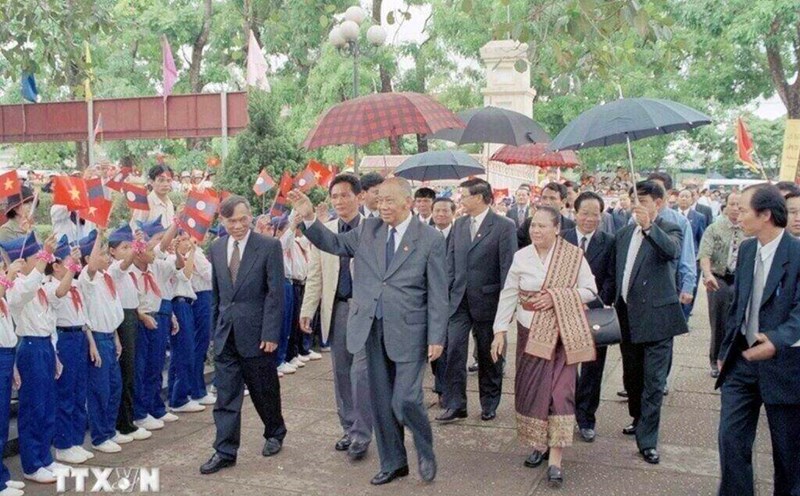The US State Department announced on February 5 that its government ships will be allowed to travel through the Panama Canal without paying a toll, after the Trump administration put pressure on Panama. The agreement will save the US government millions of dollars each year, the announcement said.
However, shortly afterwards, the Panama Canal Authority (ACP) denied this information, affirming that there were no changes related to canal fees or priority rights for US ships.
ACP, an autonomous body under the Panamanian government, stressed that it has not made any adjustments to its toll policy and is ready to dialogue with US officials on the issue of the movement of military vessels.
This comes amid escalating tensions after President Trump threatened to regain control of the Panama Canal, even not ruling out the use of force to achieve this goal.
In a meeting with Panamanian President Jose Raul Mulino on February 2, US Secretary of State Marco Rubio stressed that China’s presence in the Panama Canal is a threat and violates previous agreements between the US and Panama. Mr. Trump and Mr. Rubio both expressed concerns about Chinese investments, especially Beijing’s ownership of ports at both ends of the canal, which could pose a strategic risk in the event of a crisis.
President Mulino has denied these allegations, asserting that Panama has full control of the canal and that there is no agreement giving China operational rights.
To allay US concerns, Mulino announced that Panama would withdraw from China’s Belt and Road Initiative. However, President Trump still expressed his dissatisfaction, saying that the US and Panama would continue negotiations on February 7 to discuss the issue further.
The 82-kilometer-long Panama Canal is a strategic waterway connecting the Pacific and Atlantic oceans, carrying about 5 percent of global shipping traffic. About 40 percent of U.S. container traffic depends on the route. Although the U.S. built and operated the canal for decades, full control was transferred to Panama in 1999 after a lengthy period of joint management.
In another move to strengthen bilateral ties, the Pentagon announced that US Defense Secretary Pete Hegseth and President Mulino had agreed to enhance cooperation between the two militaries, focusing on the security of the Panama Canal. This shows that despite many disagreements, both sides remain committed to dialogue to find solutions to outstanding issues.









